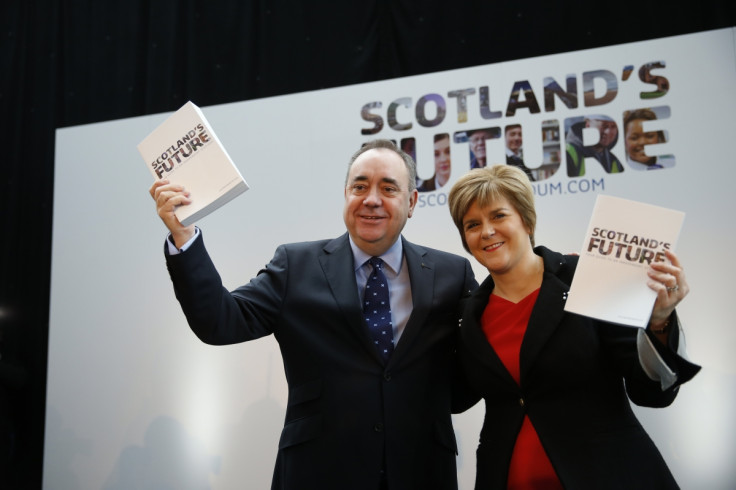Scottish Independence: Top Reasons Why It's a Bad Idea

The Confederation of British Industry launched a scathing attack on the Scottish National Party's economic plan, in the event the country breaks away from the UK, by saying it "doesn't add up."
Here are the highlights from the CBI report:
Fiscal Outlook
With Scotland's net deficit larger than the rest of the UK at 8.3% or £2,303 per person and considerably more volatile, given its dependence on oil and gas, an independent Scotland would need to prioritise deficit reduction – at the very least it would have to mirror the UK's Government's current pace:
- Scotland's fiscal performance is expected to deteriorate relative to the rest of the UK, according to the Office for Budgetary Responsibility (OBR), and would be 2.7% higher in 2016/17
- In the event of Scottish independence in 2016, its fiscal deficit would be 4.8% of Scottish GDP, higher than the 3% maximum deficit allowed by the European Union's Growth and Stability Pact before members have to consolidate their finances
- There are at least £670m (€802m, $1.1bn) unfunded commitments in the White Paper, despite the Scottish Government's statement that its immediate policy plans are fiscally neutral – that amounts to at least a 0.4% deterioration in an independent Scotland.
On currency

Scotland currently does most of its trade with the rest of the UK: £18bn more than with any other part of the world. This strong internal market can only be guaranteed by Scotland remaining part of the UK and keeping the Pound. But the UK's main parties have ruled out the use of Sterling in an independent Scotland and businesses do not want to see an unstable currency union.
The Scottish Government must set out a credible plan B on currency. The CBI's analysis highlights:
- The Pound's relative stability – widely viewed as a safe haven currency – which reduces uncertainty for Scottish exporters and importers
- As part of the UK's monetary, banking, fiscal and political union, Scotland benefits from UK Government backing for the banking sector and deposit protection
- The experience of the Eurozone which provides salutary lessons about why a sterling union may not be viable without banking, fiscal and political union.
Breaking up the Internal Market
The CBI analysis found that breaking up the internal market would increase costs for businesses and consumers on both sides of the border:
- Creating a new border would increase costs for businesses who currently benefit from a common set of rules. For example, in the event of independence complex tax rules for cross-border trade would have to be drawn up and could double the amount of regulation with which firms have to comply
- Costs would increase under independence for consumers, for example, for food – as retailers who currently spread distribution costs across the UK would be forced to pass the full costs on to Scottish consumers. Children's clothes and new dwellings are also currently VAT exempt in the UK
- The higher interest rate that would inevitably be payable on Scottish government debt would have a knock-on effect for mortgage repayments, loan and credit card bills.
Future European Union Membership

The White Paper rightly identifies that full EU membership is in Scotland's best interests, but an independent Scotland would have to renegotiate membership, which is unlikely to be either a smooth or quick process with new terms potentially leaving it worse off:
- Even if an independent Scotland did eventually re-join the EU - which President Barroso has made clear would be "extremely difficult, if not impossible" - there would be significant business uncertainty and loss of trade in the interim period
- Scotland will not be able to pick and choose the terms of its membership and is likely to be asked to commit to joining the Euro, the Schengen visa area and play a full part in a Banking Union, which could undermine the stability of financial centres in Scotland and the UK – these terms do not apply to the UK. Other UK protections at risk include VAT exemptions on products like Children's clothes.
- An independent Scotland would have reduced influence in the EU, based on the size of its population and economy, compared to the UK, which has the joint largest share of weighted votes in the European Council and the third highest number of MEPs.
© Copyright IBTimes 2024. All rights reserved.






